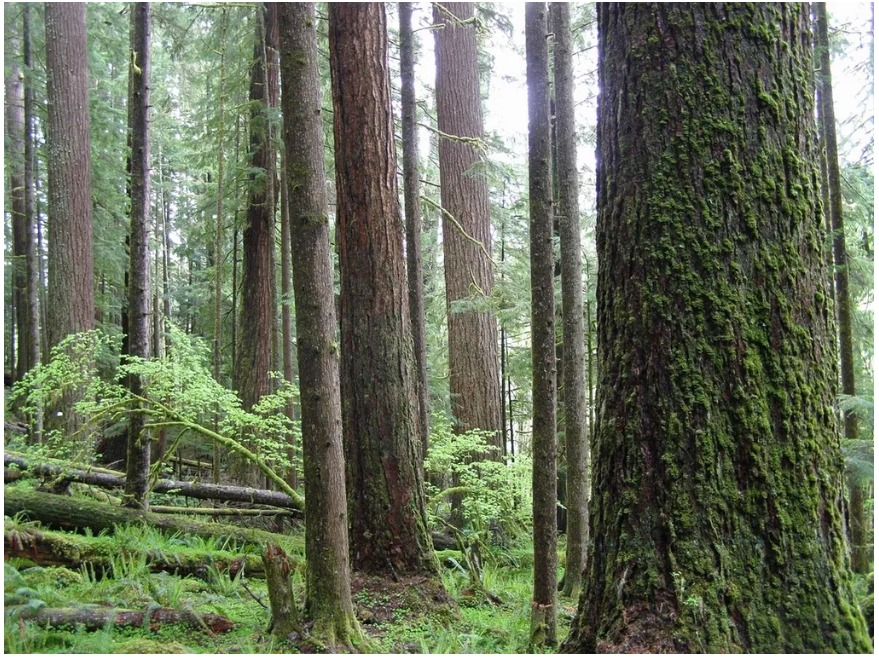Hilary Franz, Commissioner of Public Lands, and Rep. Mike Chapman, D-Port Angeles, co-authored this opinion piece for the Seattle Times on HB 1789, which would allow the Washington State Department of Natural Resources to access the state’s newly-created carbon exchange as a new source of revenue. The bill passed the House on March 7 with a vote of 82-13.

Allow sale of credits for carbon stored in WA-owned lands
By Hilary Franz and Mike Chapman
Since we became a state in 1889, Washington has used our working forests and farms and other public lands to build up and support our communities. These lands have produced billions of dollars of revenue that have built our schools, hospitals, universities, fire stations, libraries and even our Capitol dome itself.
But we no longer live in 1889, and the model by which we manage our public lands needs to be updated to reflect the tremendous advances we have made in understanding the full value of our forests, farms and aquatic lands.
Thanks to research over decades — and experience — we know that the value of Washington’s rich landscapes goes well beyond the materials we can extract from them. In fact, these lands, in addition to providing critical wood for our homes, hospitals and schools and food for our tables, also provide critical ecosystem services like clean air and water, and carbon sequestration and storage. Indeed, these lands provide the most valuable tools we have to address the challenges climate change poses for everyone in our state.
And it’s past time we capitalize on that value to increase revenues for our schools and communities, reduce costs to taxpayers, and improve the health of our forests, farms and aquatic lands.
That’s why we support House Bill 1789, which enables the Washington State Department of Natural Resources (DNR) to tap into a new source of revenue by accessing the state’s newly-created carbon exchange. We can do this all while supporting and enhancing our state’s vital forestlands, farmlands and aquatic lands.
By selling credits for the carbon stored in our working forests and farmlands, and for the natural ecosystem services our landscapes provide, we can add more revenue for beneficiaries of state trust lands, increase the value of working forests and farmlands, and give a much-needed boost to habitat restoration initiatives that have never been adequately funded.

DNR should be able to work in the carbon offset sector in the same way private-sector businesses and nonprofit organizations already do. However, laws written long ago before carbon markets existed prevent DNR from doing so.
That’s holding the state back, reducing the value and productivity of our forests, farms and aquatic lands, slowing down climate action and costing the state money.
Under current state law, DNR is only allowed to sell “valuable materials” like timber, wheat, apples and gravel from state-owned lands. HB 1789 changes that, so the agency would be able to sell carbon sequestration and ecosystem services as well.
When we sell these credits, we would receive money from carbon-intensive industries to invest in our forests, farms and aquatic lands to build a more climate-resilient state.
For example, we have 138,000 acres of forest lands that have burned in the last decade, and we could use carbon credits to offset the cost of post-wildfire reforestation efforts, leading to quicker and more robust re-establishment of forests, which also means more wood for our mills and more revenue for our schools and communities. Similarly, we could use carbon credits to restore the health of our forests that are struggling because of disease and drought, and prevent catastrophic wildfires from occurring.
Carbon credits can also generate revenue to acquire working forests at risk of development so they can continue to be managed as working forests. Our working forests are one of our state’s biggest economic engines, and a critical part of our efforts to fight climate change and reduce pollution. Washington already has lost more than 400,000 acres of working forests over the last 20 years, and is likely to lose another 600,000 acres over the next 20 years. Allowing DNR to sell carbon credits to purchase working forests at risk of conversion will prevent the loss of our working forests while also increasing revenue for our schools and communities.
The best part — this isn’t just about forests. We know that blue carbon projects, like kelp and eelgrass reforestation, which conserve and restore aquatic ecosystems, can generate $35 or more per credit. This could translate into tens of millions per project to support salmon recovery, habitat resilience and communities throughout the state.
And as the carbon market created by the 2021 Climate Commitment Act ramps up, DNR-managed lands can act as a crucial local source of high quality carbon credits. No matter what, we can’t offshore our forests or tidelands.
Washington is a stronger state because of the way we’ve supported and used the working forests, farms and aquatic lands we have under public ownership. By advancing that management to include the sale of carbon credits, we will add a critical funding tool that will generate more revenue to support our kids and schools, restore critical salmon habitat, protect and increase forestlands, and contain the harmful emissions that threaten our precious landscapes.
Passing this legislation will send a message to our children and our communities that we’re committed to letting Washington’s working lands work for Washington, providing jobs, food, sustainable building materials and climate action.
